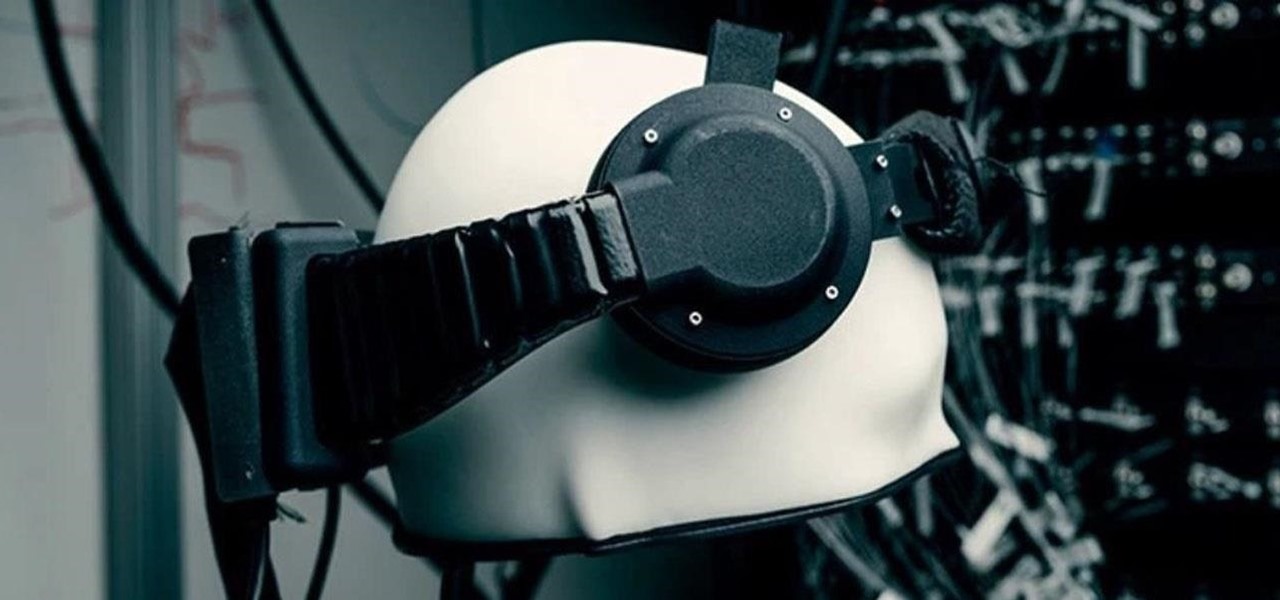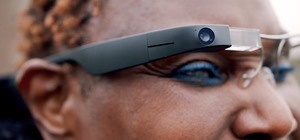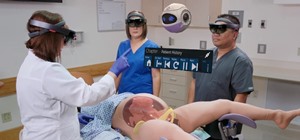Who's ready to let future Facebook augmented reality smartglasses read their brain? Well, ready or not, the tech giant is making progress in the area of brain control interfaces (BCI) by funding research.
This week, Facebook shared some of the progress its Facebook Reality Labs research and development team along with university research partners have made.
- Don't Miss: Facebook Updates Spark AR with Windows Support & New Features, Instagram AR Arriving This Summer
Those following Facebook's research in this area remember that, at its F8 developers' conference in 2017, the company announced its intentions to build systems that enable users to type with their brains at speeds up to 100 words per minute.
"We've already learned a lot," said Mark Chevillet, a research director of Facebook Reality Labs, in a recent blog post.
"For example, early in the program, we asked our collaborators to share some de-identified electrode recordings from epilepsy patients with us so we could validate how their software worked. While this is very common in the research community and is now required by some journals, as an added layer of protection, we no longer have electrode data delivered to us at all."

Among the advancements is research from the University of California, San Francisco (UCSF), published in an article on Nature, in the area of decoded speech.
Don't we already have speech-to-text though, you say? Yes, but this experimental technology would actually interpret neural signals in the brain to render the intended speech into full messages. UCSF's breakthrough is that it can now decode these signals in real time.

In its research, the UCSF team, through question-and-answer experiments, was able to isolate signals for perceiving questions and formulating answers in the brain to detect speech activity and predict answers in real time. In addition, the team was able to train a speech event detector to recognize the signals producing these reactions.
While UCSF's method involves invasive methods of BCI, namely electrodes implanted into the user's head (similar to the method recently demonstrated by Elon Musk's Neuralink project), Facebook is also backing research into non-invasive methods.
One such approach involves using infrared light to measure changes in oxygen levels in the brain resulting from neural activity. For these methods, Facebook Reality Labs is working with the Mallinckrodt Institute of Radiology at the Washington University School of Medicine and the Johns Hopkins University Applied Physics Laboratory. Facebook Reality Labs has developed a prototype wearable BCI device for use in this research (see image at the top of this page).

However, the current non-invasive technology is still too cumbersome and slow and will need many iterations and technical advancements before commercial production can be seriously considered. In addition, this particular oxygen measuring method of BCI is limited to identifying single words imagined by the user, as opposed to full sentences that invasive methods can achieve.
That's not to say that non-invasive BCI devices won't eventually find a home in the wearable augmented reality ecosystem, as single commands such as "home" or "select" could make computing in an AR headset more seamless.
"The question of input for all-day wearable AR glasses remains to be solved, and BCI represents a compelling path towards a solution," wrote Facebook's research team in the blog post. "A decade from now, the ability to type directly from our brains may be accepted as a given. Not long ago, it sounded like science fiction. Now, it feels within plausible reach. And our responsibility to ensure that these technologies work for everyone begins today."
All this research is exciting, but there's an elephant in the room to address. In recent years, Facebook has developed a reputation for playing fast and loose with user data and privacy, and the company has now drawn the attention of federal investigators and is facing an anti-trust probe.
In her presentation on BCI at F8 in 2017, Regina Dugan, the vice president of Building 8 (Facebook's advanced research team), noted that BCI does not read all of a user's thoughts, but just those that they intend to share. But, given Facebook's checkered data privacy history, would that really be enough to put the minds of users at ease?
While a rising tide, in this case, Facebook-funded breakthroughs in BCI, lifts all boats, Facebook's interest in next-generation interfaces for augmented reality could end up have a chilling effect just through its association. Nevertheless, the possibility of thought-controlled AR wearables in the future is a fascinating concept that will likely only continue to gain steam.
Just updated your iPhone to iOS 18? You'll find a ton of hot new features for some of your most-used Apple apps. Dive in and see for yourself:
























Be the First to Comment
Share Your Thoughts